Presidential Gold Medal
The highest award the ACR can bestow, the Presidential Gold Medal is awarded in recognition of outstanding achievements in rheumatology over an entire career. This year’s award went to James O’Dell, MD, the Stokes-Shackleford Professor of Internal Medicine, vice chair of internal medicine and chief of the Division of Rheumatology at the University of Nebraska Medical Center (UNMC), Omaha, and the Omaha VA.
Dr. O’Dell graduated from the University of Nebraska, Lincoln, with a Bachelor of Science in electrical engineering. He went on to earn his medical degree at UNMC, where he also completed his residency and chief residency in internal medicine. He later completed a clinical and research fellowship at the University of Colorado Health Services Center, Denver.
“My own interest in rheumatology came after doing a rotation with Art Weaver, MD, who was the first rheumatologist in Nebraska,” Dr. O’Dell says. “He was my role model, and I thought the field of rheumatology would be a good fit and also might allow me something of a work/life balance.”
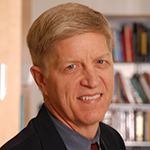 In addition to his work at the university, Dr. O’Dell is the founder and director of the Rheumatoid Arthritis Investigational Network (RAIN), a group of rheumatologists conducting investigator-initiated trials to find better treatments for RA. “We’ve helped pioneer the use of combinations of medications to successfully and economically treat RA,” Dr. O’Dell says. “Patients with RA now have much better controlled disease with less costly therapies because of RAIN research.”
In addition to his work at the university, Dr. O’Dell is the founder and director of the Rheumatoid Arthritis Investigational Network (RAIN), a group of rheumatologists conducting investigator-initiated trials to find better treatments for RA. “We’ve helped pioneer the use of combinations of medications to successfully and economically treat RA,” Dr. O’Dell says. “Patients with RA now have much better controlled disease with less costly therapies because of RAIN research.”
In 2015, Dr. O’Dell received UNMC’s Research Leadership Award for his work with RAIN. The group’s achievements include pioneering the use of triple therapy to treat RA and studies that compare the efficacy and cost of conventional and biologic DMARDs.
Dr. O’Dell served as UNMC’s director of internal medicine residency for more than 35 years and trained more than a thousand residents. In 2019, he was honored with the Educator Laureate Award, the university’s highest honor.
In 2015, Dr. O’Dell also embarked on a national gout study with the Veterans Administration. The study, which he is just completing, examines allopurinol and febuxostat as first-line treatments for gout. He has been published several hundred times, including four first-authored publications in the New England Journal of Medicine.
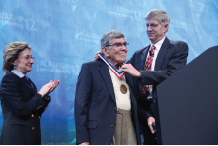
Audrey Uknis, MD, and James O’Dell, MD, present Herbert Kaplan, MD, with the Presidential Gold Medal in 2012.
Dr. O’Dell served as president of the ACR in 2012. Over the years, he has served in numerous other leadership positions with the ACR and the Rheumatology Research Foundation. In 2015, he was named to the Foundation’s Honorary Board of Advisors and received the ACR Distinguished Clinical Educator Award.
Dr. O’Dell cites Herbert Kaplan, MD, as an important mentor. “Dr. Kaplan was the person who first got me involved in ACR,” Dr. O’Dell says. “I was honored to present him with the ACR Presidential Gold Medal in 2012. If I can help other rheumatologists find their way in rheumatology, like Dr. Kaplan did with me, I consider that a privilege.”
Under Dr. O’Dell’s leadership, the Foundation embarked on the $30 million Within Our Reach: Finding a Cure for Rheumatoid Arthritis campaign, which supports academic centers of rheumatology as well as research efforts. “I’m also very proud of our work in establishing the ACR’s national disease registry [which has become RISE] and initiating disease target research fundraising that now raises millions of dollars annually to support research projects across the country,” Dr. O’Dell says.
“Receiving this award is humbling, especially when I think of past winners and the contributions they’ve made to the rheumatology field,” Dr. O’Dell says. “I consider so many of the past winners my mentors and role models.”
Not to make light of his significant contributions to rheumatology, Dr. O’Dell says one of his greatest accomplishments is his family. He and his wife, Deb, a nurse, have been married for 47 years and have three grown children and, more importantly, he says, six grandchildren.
In early November during ACR Convergence 2020, the ACR and ARP honored a group of distinguished individuals who have made significant contributions to rheumatology research, education and patient care, announcing the recipients of the ACR’s 2020 Awards of Distinction and the ARP’s Merit Awards.
This month, The Rheumatologist speaks with the winners of the ACR Awards of Distinction about their individual contributions to advancing rheumatology. You’ll also find a list of individuals honored by the ACR with the Master designation in 2020.
Look for our coverage of the ARP Merit Awards and conversations with the 2020 Distinguished Fellows in the December issue of The Rheumatologist.
Receiving this award is humbling. So many of the past winners are my mentors. —Dr. O’Dell
Distinguished Service Award
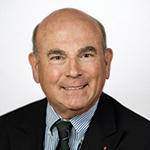 The ACR Distinguished Service Award was presented to Stuart Kassan, MD, FACP, MACR, Distinguished Clinical Professor of Medicine, University of Colorado, School of Medicine, for his outstanding contributions to the advancement of rheumatology over the course of his career.
The ACR Distinguished Service Award was presented to Stuart Kassan, MD, FACP, MACR, Distinguished Clinical Professor of Medicine, University of Colorado, School of Medicine, for his outstanding contributions to the advancement of rheumatology over the course of his career.
Dr. Kassan received his undergraduate degree at Case Western Reserve University, Cleveland, and went on to receive his medical degree at The George Washington University School of Medicine, Washington, D.C. He completed his residency at Emory University, Atlanta, and his fellowship at the Hospital for Special Surgery, Cornell Medical Center, New York.
He attributes his initial interest in rheumatology to his father, Robert J. Kassan, MD, who practiced rheumatology in White Plains, N.Y., for more than 40 years and was honored as an ACR Master in 2002. As a young boy, Dr. Kassan would sometimes accompany his dad on house calls.
“It’s certainly a thrill to be recognized by one’s peers for something that means so much to me,” Dr. Kassan says of the award. “I enjoy working with my colleagues at the ACR to make the rheumatology specialty the best it can be.”
While working at the National Institutes of Health in the late 1970s, Dr. Kassan published a sentinel paper on the association between Sjögren’s syndrome and lymphoma. Since then, he has testified before Congress on Sjögren’s syndrome and authored more than 40 research papers, chapters and books on Sjögren’s syndrome and related diseases.
A firm believer in professional development, Dr. Kassan has been a longtime member of and volunteer with the ACR and was named an ACR Master in 2012. He was the Paulding Phelps Award winner in 2015. In addition, he is a recent member of the Rheumatology Research Foundation Board of Directors, the national Board of Directors for the Arthritis Foundation and is president of the Colorado Rheumatology Association. In 2014, Dr. Kassan was named Distinguished Clinical Professor of Medicine at the University of Colorado School of Medicine, the highest award a clinical faculty member there can receive.
As medical director of the Infusion Center of Denver since the clinic opened its doors in 2009, Dr. Kassan has seen dramatic changes with the advent of biologic therapies.
“This has given us the ability to say to patients ‘I can put the disease in remission’—words that were never spoken before,” he says. “This has also enhanced the popularity of the specialty, thus attracting the best and the brightest into the field. It’s a great time to be a rheumatologist!”
It’s a thrill to be recognized by one’s peers for something that means so much. —Dr. Kassan
Distinguished Clinician Scholar Award
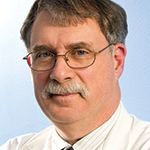 Robert Warren, MD, PhD, MPH, professor emeritus of pediatric rheumatology at the Medical University of South Carolina (MUSC), Charleston, received this year’s Distinguished Clinician Scholar award, given each year to a rheumatologist who has made outstanding contributions in clinical medicine, clinical scholarship or education.
Robert Warren, MD, PhD, MPH, professor emeritus of pediatric rheumatology at the Medical University of South Carolina (MUSC), Charleston, received this year’s Distinguished Clinician Scholar award, given each year to a rheumatologist who has made outstanding contributions in clinical medicine, clinical scholarship or education.
Dr. Warren graduated with both an MD and PhD from Washington University School of Medicine, St. Louis, where he was a member of the Alpha Omega Alpha Honor Medical Society, and later earned an MPH from the UT School of Public Health, Dallas. At Duke University, Durham, N.C., Dr. Warren completed his pediatric training and finished a combined fellowship in pediatric rheumatology and allergy and immunology.
“Pediatric rheumatology is a team effort, and this award truly reflects the awesome synergy among all my colleagues over the course of my career at Duke, the University of North Carolina [UNC], Texas Children’s Hospital and Baylor College of Medicine, Houston, Texas, and the Medical University of South Carolina,” Dr. Warren says.
Dr. Warren led the Pediatric Rheumatology Division at UNC, Chapel Hill, and at Baylor and Texas Children’s Hospital. After relocating to South Carolina, he was chief medical information officer for MUSC until his retirement in 2018.
Today, Dr. Warren works part time as a consultant in healthcare informatics and teaches in the MUSC Pediatric Rheumatology Fellowship program and the Health Informatics graduate program.
“I love working with children, their parents and my team,” Dr. Warren says. “My greatest joy comes with discovery—the Sherlock Holmes work for both diagnosis and treatment—but most important, seeing children’s smiles when they master their health challenges.”
Dr. Warren’s clinical and administrative work has long focused on improving the care experience for providers and families. This includes examining how electronic medical records can improve quality of care, as well as communication between providers and families for children with special healthcare needs (CSHCN).
Dr. Warren chaired the CSHCN Advisory Committee for the Texas Department of Health and served as co-chair for the Texas Pediatric Society Committee on Children with Disabilities.
Through his work with the Pediatric Rheumatology Executive Committee of the American Academy of Pediatrics and the Clinical Rheumatology Study Section of the Arthritis Foundation, Dr. Warren has seen the field of rheumatology undergo extraordinary changes.
“The last 40 years have seen the advent of methotrexate and biologics, as well as improvements with CT scans, MRI scans, and many critical laboratory studies,” Dr. Warren says. “Overall, our evolving understanding of rheumatologic diseases and best practice continues to transform our patient care and outcomes.”
This award truly reflects the awesome synergy among all my colleagues. —Dr. Warren
Distinguished Clinical Investigator Award
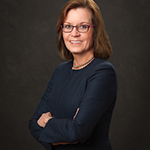 Joanne M. Jordan, MD, MPH, the Joseph P. Archie Jr. Eminent Professor of Medicine, emerita, in the Division of Rheumatology, Allergy and Immunology at the University of North Carolina (UNC) School of Medicine, Chapel Hill, is the recipient of this year’s Distinguished Clinical Investigator Award for outstanding contributions to the field of rheumatology.
Joanne M. Jordan, MD, MPH, the Joseph P. Archie Jr. Eminent Professor of Medicine, emerita, in the Division of Rheumatology, Allergy and Immunology at the University of North Carolina (UNC) School of Medicine, Chapel Hill, is the recipient of this year’s Distinguished Clinical Investigator Award for outstanding contributions to the field of rheumatology.
As the founding principal investigator and director of the Johnston County (N.C.) Osteoarthritis Project, Dr. Jordan’s clinical research has focused on racial, ethnic and gender disparities in osteoarthritis (OA), its risk factors and health outcomes.
“This award from my rheumatology peers is especially meaningful because it acknowledges that OA is now an important component of the ACR’s rheumatology research agenda,” Dr. Jordan says. “It also validates the biopsychosocial and inclusive research approach and vision we have executed in our 30+ year, community-based research program in Johnston County.”
Dr. Jordan received her MD from the Johns Hopkins University School of Medicine, Baltimore. She completed her internal medicine residency and rheumatology fellowship at Duke University Medical Center, Durham, N.C. In 1987, she joined the faculty of UNC School of Medicine and completed her MPH in epidemiology at UNC’s Gillings School of Global Public Health.
For the past 32 years, Dr. Jordan has worked as clinical investigator while also serving in leadership roles at UNC’s School of Medicine, including as chief of the Division of Rheumatology, Allergy and Immunology, director of UNC’s Thurston Arthritis Research Center and vice dean for faculty affairs and leadership development. She retired this past January.
“It has been my great privilege to have worked side by side with so many talented and committed people from the local research and public health communities, all working together to advance insights into OA etiology, treatment, prevention and policy,” Dr. Jordan says. “This award reminds me that, ultimately, we conduct research to serve our patients, enhance their care, and encourage greater hope for innovative and improved treatment options in the future.”
During the course of her career, Dr. Jordan has also served on the boards of directors of the ACR and the Osteoarthritis Research Society International, and on multiple committees, where she has witnessed how innovation and research have changed the way rheumatologic diseases are treated.
“In my field of OA, a critical shift has occurred in our understanding of specific OA phenotypes and geographic and environmental variations in OA, and in the roles of inflammation, genetics, biomechanics, metabolism and social factors in OA outcomes,” Dr. Jordan says. “Perhaps most promising, clinical trials to identify disease-modifying OA treatments are now commonplace, with success no longer a far-off pipe dream.”
This award reminds me that, ultimately, we conduct research to serve our patients. —Dr. Jordan
Distinguished Basic/Translational Investigator Award
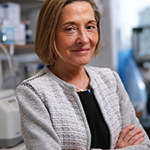 M. Virginia Pascual, MD, Ronay Menschel Professor of Pediatrics and director of the Gale and Ira Drukier Institute for Children’s Health at Weill Cornell Medicine, is the recipient of this year’s Distinguished Basic/Translational Investigator Award for making outstanding contributions to rheumatology. She is currently the program director of an Autoimmunity Center of Excellence, funded by the National Institute of Allergy and Infectious Diseases, and the Center of Research Translation focused on pediatric lupus, funded by the National Institute of Arthritis and Musculoskeletal and Skin Diseases.
M. Virginia Pascual, MD, Ronay Menschel Professor of Pediatrics and director of the Gale and Ira Drukier Institute for Children’s Health at Weill Cornell Medicine, is the recipient of this year’s Distinguished Basic/Translational Investigator Award for making outstanding contributions to rheumatology. She is currently the program director of an Autoimmunity Center of Excellence, funded by the National Institute of Allergy and Infectious Diseases, and the Center of Research Translation focused on pediatric lupus, funded by the National Institute of Arthritis and Musculoskeletal and Skin Diseases.
A native of Spain, Dr. Pascual received her medical degree from the Facultad de Medicina, Universidad Complutense, Madrid, and completed her residency in pediatrics at Hospital “12 de Octubre,” U. Complutense in Madrid. She then came to the U.S. to complete a postdoctoral fellowship at the University of Texas Southwestern Medical Center.
As a physician-scientist specializing in pediatric rheumatology, Dr. Pascual’s research has focused on understanding the root causes of autoimmune disease, including systemic lupus erythematosus (SLE) and inflammatory arthritis in children. Dr. Pascual strives to translate laboratory findings into the identification of therapeutic targets and useful biomarkers.
“Over the course of my career, I’ve witnessed how therapeutics have evolved to target specific molecules in the immune system,” Dr. Pascual says. “This approach has been very successful, but most chronic inflammatory diseases are heterogeneous and not every patient responds to a given drug. An important challenge now is to find ways to predict which targeted therapy might be most effective in each patient. We, and many other groups around the world, are working toward this goal.”
Historically, Dr. Pascual says, few studies have been conducted on lupus in children, but through her research she has been able to analyze blood samples from children on a frequent basis and to apply innovative technologies and analytical methods. In doing this, she also hopes to gain a snapshot of early disease activity, even before symptoms appear.
Dr. Pascual’s studies have contributed to the discovery that type 1 interferon and interleukin 1 (IL-1) are important pathogenic players in SLE and systemic juvenile idiopathic arthritis (sJIA), respectively. She and her colleagues were at the forefront of using IL-1 blockers in sJIA, which have shown excellent clinical benefits in nearly 70% of patients.
“I am tremendously grateful and honored to receive this award,” Dr. Pascual says. “I’m also humbled to be in the company of so many investigators in the rheumatology field who work tirelessly to advance our knowledge of rheumatic diseases.”
I’m humbled to be in the company of so many investigators in the rheumatology field who work tirelessly to advance our knowledge. —Dr. Pascual
Paulding Phelps Award
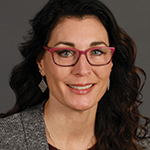 Kara Petersen, MD, a rheumatologist with the Avera Medical Group Rheumatology, Sioux Falls, S.D., is the recipient of this year’s Paulding Phelps Award for outstanding service to patients, community and the practice of medicine.
Kara Petersen, MD, a rheumatologist with the Avera Medical Group Rheumatology, Sioux Falls, S.D., is the recipient of this year’s Paulding Phelps Award for outstanding service to patients, community and the practice of medicine.
“Receiving this award affirms that I’m doing the right things with my life, and I’m doing them in the right way,” Dr. Petersen says. “It means the time I put into building relationships with my patients, patient families, students, colleagues and the community is recognized as something valuable. It also reinvigorates my faith and my commitment to serving those around me.”
Dr. Petersen obtained her medical degree from the University of South Dakota Sanford School of Medicine, Vermillion, and completed her residency in internal medicine at the University of Nebraska Medical Center, Omaha. She completed her rheumatology fellowship training at the University of Iowa, Iowa City.
As a clinical professor in the Department of Internal Medicine at the Sanford School of Medicine, Dr. Petersen works with medical students at various stages of training. She provides feedback to students in their first clinical weeks and enjoys mentoring fourth-year students who rotate through rheumatology.
“It’s very rewarding to see some of these students or residents pursue careers in rheumatology and return to South Dakota, since we have a shortage of rheumatologists in rural areas,” says Dr. Petersen, who also hosts two or three internal medicine residents yearly for a longitudinal rheumatology clinical experience.
Dr. Petersen currently serves on the Biologics Stewardship Committee for the Avera Health Plan and as secretary of the Board of Directors for the Rheumatology Association of Minnesota and the Dakotas.
“I love that rheumatology is never boring and requires lifelong learning, which keeps me both engaged and humble,” Dr. Petersen says. “I also enjoy the long-term relationships that come with helping patients and their families successfully manage chronic conditions over months, years and, maybe, decades together. It becomes more than just a workday or schedule to complete.”
Receiving this award reinvigorates my faith & my commitment to serving those around me. —Dr. Petersen
Henry Kunkel Early Career Investigator Award
The Henry Kunkel Early Career Investigator Award is given to a physician-scientist, age 45 or younger by Oct. 1 of the year in which they were nominated, who has made outstanding and promising contributions to basic or clinical research in the field of rheumatology. This year’s recipients are Ami Aalok Shah, MD, MHS, and Pamela Weiss, MD, MSCE.
 Dr. Shah is an associate professor of medicine, deputy director of the Precision Medicine Center of Excellence for Rheumatology and co-director of the Johns Hopkins Scleroderma Center. A graduate of the Massachusetts Institute of Technology, Boston, and the Johns Hopkins University School of Medicine, Dr. Shah completed her internal medicine residency at Stanford University Hospital and Clinics, Palo Alto, Calif., and her rheumatology post-doctoral fellowship at Johns Hopkins. During her fellowship training, Dr. Shah also earned a master’s degree in health sciences in clinical investigations at the Johns Hopkins Bloomberg School of Public Health.
Dr. Shah is an associate professor of medicine, deputy director of the Precision Medicine Center of Excellence for Rheumatology and co-director of the Johns Hopkins Scleroderma Center. A graduate of the Massachusetts Institute of Technology, Boston, and the Johns Hopkins University School of Medicine, Dr. Shah completed her internal medicine residency at Stanford University Hospital and Clinics, Palo Alto, Calif., and her rheumatology post-doctoral fellowship at Johns Hopkins. During her fellowship training, Dr. Shah also earned a master’s degree in health sciences in clinical investigations at the Johns Hopkins Bloomberg School of Public Health.
Dr. Shah’s primary research interest is in scleroderma.
“As in many of our rheumatic diseases, there is tremendous heterogeneity in the clinical phenotypes and kinetics of the disease,” Dr. Shah says. “Our group is working to address the complexity of the disease by defining more homogenous patient subgroups that may share disease mechanisms, risks of complications and response to different therapies—so that one day we can achieve the goal of precision medicine and individualized healthcare for our patients.”
Dr. Shah is also investigating the connection between cancer and scleroderma, and says early data suggests cancer may drive the development of scleroderma in some patients.
“By identifying subgroups of patients with a high cancer risk at scleroderma onset, we are able to study the role of cancer as a trigger of autoimmunity and also investigate whether these patient subgroups benefit from targeted cancer screening strategies,” Dr. Shah says.
Dr. Shah has served on ACR’s Early Career Investigator Subcommittee and the Rheumatology Research Foundation’s Core Portfolio Review Panel. She is also a Steering Committee member and Science Subcommittee Chair for the U.S. multi-center CONQUER scleroderma registry.
“I’m deeply honored to be a recipient of the Henry Kunkel Young Investigator Award,” Dr. Shah says. “It’s humbling given Henry Kunkel’s legacy, and I’m also honored to be in the company of so many previous recipients, who I look to as role models in rheumatology.”
Dr. Shah looks forward to continuing studying various aspects of scleroderma.
“I’m excited by new opportunities at Johns Hopkins to harness institutional big data and novel analytic strategies to further our goal of precision medicine in the rheumatic diseases,” she says. “An important component of this work is developing tools to bring scientific discoveries back into the clinic and I’m excited about the potential of this work to positively impact care for patients with rheumatic diseases.”
I’m honored to be in the company of so many previous recipients, who I look to as role models. —Dr. Shah
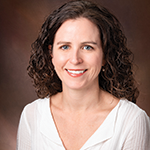 Pamela Weiss, MD, MSCE, is an attending physician and associate professor and director of clinical research in the Division of Rheumatology at Children’s Hospital of Philadelphia (CHOP).
Pamela Weiss, MD, MSCE, is an attending physician and associate professor and director of clinical research in the Division of Rheumatology at Children’s Hospital of Philadelphia (CHOP).
Dr. Weiss’ research interests include pharmacoepidemiology and outcomes research in JIA and juvenile spondyloarthritis (SpA). Her research goals include improving the diagnosis of juvenile SpA, better defining disease activity for these patients and developing treatment strategies for the condition. She has more than a decade of experience leading clinical research endeavors, including multi-center research and international collaborations.
“I plan to continue in my quest to improve the ongoing evaluation and treatment of children and adolescents with SpA. There is so much more to learn about this disease and the impact of many emerging drugs targeting the axis thought to be involved in disease pathogenesis,” Dr. Weiss says. “Aside from the fascinating and complex diseases that we treat, I really enjoy my colleagues and my research team, all of whom are a never-ending source of inspiration and support.”
Dr. Weiss completed her undergraduate studies at Princeton University, N.J., and received her medical degree from the Albert Einstein College of Medicine, New York. She completed an internship and residency in pediatrics, as well as a fellowship in pediatric rheumatology, at CHOP. She went on to receive a Master of Science in clinical epidemiology from the University of Pennsylvania Center for Clinical Epidemiology and Biostatistics.
She served on the ACR’s Pediatric Rheumatology Special Committee, the Guidelines Subcommittee and was co-chair of the 2013 Juvenile Arthritis Treatment Recommendations update. Dr. Weiss was also an educator for the inaugural ACR Virtual Rheumatology Practicum for Pediatric Rheumatology Fellows program.
Dr. Weiss currently serves on the Spondylitis Association of America Medical and Scientific Advisory Board and the Spondyloarthritis Research and Treatment Network Board of Directors.
“I’m very honored to be a recipient of the Henry Kunkel Young Investigator award this year,” Dr. Weiss says. “I do the work I do because it’s impactful for patients and families, with no expectation for recognition, but it’s certainly uplifting when
it happens.”
I do the work I do because it’s impactful for patients & families, with no expectation for recognition. —Dr. Weiss
Distinguished Fellowship Program Director Award
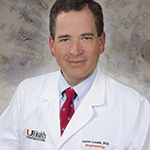 For his outstanding contributions to the training and mentoring of future rheumatologists, Carlos J. Lozada, MD, FACP, FACR, director of the rheumatology fellowship program at the University of Miami Miller School of Medicine, received this year’s Distinguished Fellowship Program Director Award.
For his outstanding contributions to the training and mentoring of future rheumatologists, Carlos J. Lozada, MD, FACP, FACR, director of the rheumatology fellowship program at the University of Miami Miller School of Medicine, received this year’s Distinguished Fellowship Program Director Award.
A native of San Juan, Puerto Rico, Dr. Lozada received his bachelor’s degree in biology from the University of Pennsylvania, Philadelphia, and his medical degree from the University of Puerto Rico School of Medicine, San Juan. He pursued his residency in internal medicine at North Shore University Hospital/Cornell University Medical College and Memorial Sloan Kettering Cancer Center, and completed his rheumatology fellowship at New York University Medical Center/Hospital for Joint Diseases.
“I chose the field of rheumatology because it’s a challenging and interesting field of inquiry and investigation related to the immune system and its workings,” Dr. Lozada says. “I also liked the opportunity to follow a group of patients and help them over time, similar to the way an internist or primary care physician does.”
Dr. Lozada has been the school’s rheumatology fellowship director since 1996 and says he enjoys his work training the next generation of rheumatologists. In addition, Dr. Lozada is a professor of clinical medicine and interim chief of the Division of Rheumatology and Immunology at the Miami Miller School of Medicine.
“Ever since the beginning of my own training as a fellow, I have enjoyed the collegiality and wonderful camaraderie that I believe makes rheumatologists very special,” Dr. Lozada says. “I was lucky to have wonderful role models early on in my own career, including Rich Furie, MD, chief of rheumatology at North Shore University Hospital in New York.”
Dr. Lozada realizes the importance of supporting rheumatology residents and fellows, and helping them reach their full potential.
“I see this award as recognition for a career where I have been fortunate to work in tandem with an incredible group of dedicated, hard-working rheumatology professionals,” Dr. Lozada says. “This goes beyond my own division and the fellows in Miami to include the ACR and the rheumatology program directors, some of whom have also become lifelong friends.”
Dr. Lozada says by working with the ACR, he and other rheumatology program directors have been able to implement fundamental changes in training fellows and in assessing the results of that training over the past two decades.
“Over the years, we’ve changed how we teach our fellows, as well as the assessment and self-assessment of the learning process, including implementation of tools such as the yearly national rheumatology-in-training exam,” Dr. Lozada says.
I liked the opportunity to follow a group of patients & help them over time. —Dr. Lozada
Excellence in Investigative Mentoring Award
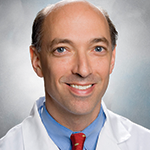 Daniel Solomon, MD, MPH, a rheumatologist at Brigham and Women’s Hospital (BWH), Boston, as well as chief of the Section of Clinical Sciences in the Division of Rheumatology and a professor of medicine at Harvard Medical School, Boston, is the recipient of this year’s Excellence in Investigative Mentoring Award. This award honors an active ACR or ARP member for their contributions to the rheumatology profession through outstanding and ongoing mentoring.
Daniel Solomon, MD, MPH, a rheumatologist at Brigham and Women’s Hospital (BWH), Boston, as well as chief of the Section of Clinical Sciences in the Division of Rheumatology and a professor of medicine at Harvard Medical School, Boston, is the recipient of this year’s Excellence in Investigative Mentoring Award. This award honors an active ACR or ARP member for their contributions to the rheumatology profession through outstanding and ongoing mentoring.
Dr. Solomon has worked as a rheumatologist for more than 20 years, while also conducting translational and clinical research, and mentoring trainees and junior faculty. Last year, Dr. Solomon was a recipient of the Harvard Medical School Program Award for Cultural Excellence in Mentoring.
While Dr. Solomon’s early research focused on the safety of non-steroidal anti-inflammatory drugs and selective COX-2 inhibitors, his current research is examining cardiovascular diseases in RA. Dr. Solomon is the co-principal investigator on an NIH-funded trial testing the effects of DMARDs on cardiovascular disease.
Dr. Solomon says he currently spends 85% of his time on research and mentoring junior investigators. As a mentor in rheumatic disease epidemiology and pharmacoepidemiology, Dr. Solomon strives to understand the goals of his mentees, offering suggestions to help improve their skills and support their professional development.
“Once I understand their goals, I work to set reasonable expectations for both parties,” he says. “Mentees need to understand what I can offer, what I expect from them, and what they can expect from me.”
Dr. Solomon’s approach to mentoring involves modeling behaviors important for success including collegiality, honest and ethical approach to data, appropriate work-life balance, and strong communication.
A graduate of Yale University, New Haven, Conn., where he received both his BA and MD degrees, Dr. Solomon continued his studies at Harvard University, where he earned his MPH. He completed both his residency in internal medicine and fellowship in rheumatology at BWH.
“I had great mentors early in my career, so being recognized by the ACR for excellence in mentoring means a great deal to me,” Dr. Solomon says. “Mentors can mean so much to a young investigator and I’m thankful that my mentees nominated me and that the ACR selected me for this award.”
Dr. Solomon is editor in chief of Arthritis & Rheumatology. He has published more than 400 original articles, chairs the U.S. Food & Drug Administration (FDA) Arthritis Advisory Committee and led the ACR Blue Ribbon panel that set recommendations for NSAIDs.
“Rheumatology is special in so many ways. First, we are able to improve the quality of our patients’ lives in very significant ways. Second, the diseases we treat are complex, interesting and require a strong general fund of medical knowledge,” Dr. Solomon says. “Finally, many of our patients come to rely on their rheumatologist as the doctor who knows them best. The long-term and enduring patient relationships make our clinical role extremely gratifying.”
Being recognized by the ACR for excellence in mentoring means a great deal to me. —Dr. Solomon
Linda Childers is a health writer located in the San Francisco Bay Area.
ACR Masters Recognized
Recognition as an ACR Master is one of the highest honors the College bestows. The designation of Master is conferred on ACR members, age 65 or older by Oct. 1 of the year in which they are nominated, who have made outstanding contributions to the ACR and the field of rheumatology through scholarly achievement and/or service to their patients, students and profession.
Exemplifying the response of those recognized as Masters of the ACR this year, Abby Abelson, MD, says, “While the pandemic has changed the way we are able to share our celebration of rheumatology in person for this annual meeting and while we are all missing the hugs that would have marked this milestone honor of becoming an ACR Master, the honor and pride of this Master’s recognition is, nonetheless, profoundly humbling and energizing.”
The 18 individuals recognized in 2020 as ACR Masters are:
 Abby Abelson, MD, is chair of the Department of Rheumatic and Immunologic Diseases at Cleveland Clinic.
Abby Abelson, MD, is chair of the Department of Rheumatic and Immunologic Diseases at Cleveland Clinic.
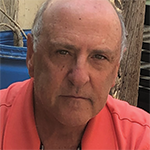 Martin Jan Bergman, MD, is clinical professor of medicine at Drexel University College of Medicine, Philadelphia, and in private practice in Ridley Park, Pa.
Martin Jan Bergman, MD, is clinical professor of medicine at Drexel University College of Medicine, Philadelphia, and in private practice in Ridley Park, Pa.
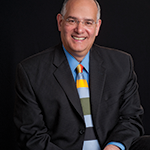 Michael B. Brenner, MD, is the Elizabeth Fay Brigham Professor of Medicine at Harvard Medical School and director of cell and molecular immunology in the Division of Rheumatology, Inflammation and Immunity at Brigham and Women’s Hospital, Boston.
Michael B. Brenner, MD, is the Elizabeth Fay Brigham Professor of Medicine at Harvard Medical School and director of cell and molecular immunology in the Division of Rheumatology, Inflammation and Immunity at Brigham and Women’s Hospital, Boston.
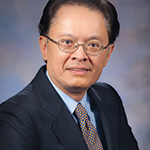 Edward K.L. Chan, PhD, is a professor in the Department of Oral Biology at the University of Florida, Gainesville.
Edward K.L. Chan, PhD, is a professor in the Department of Oral Biology at the University of Florida, Gainesville.
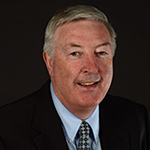 Ciarán M. Duffy, MB BCh, MSc, FRCPC, FRCPI, is chair/chief and professor of the Department of Pediatrics, Children’s Hospital of Eastern Ontario (CHEO), Canada, and a senior investigator for the CHEO Research Institute at the University of Ottawa, Ontario, Canada.
Ciarán M. Duffy, MB BCh, MSc, FRCPC, FRCPI, is chair/chief and professor of the Department of Pediatrics, Children’s Hospital of Eastern Ontario (CHEO), Canada, and a senior investigator for the CHEO Research Institute at the University of Ottawa, Ontario, Canada.
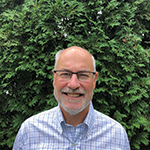 Norman T. Ilowite, MD, is an emeritus professor of pediatrics at the Albert Einstein College of Medicine, The Bronx, N.Y.
Norman T. Ilowite, MD, is an emeritus professor of pediatrics at the Albert Einstein College of Medicine, The Bronx, N.Y.
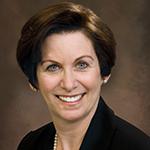 Emily Isaacs, MD, is a rheumatologist with the USMD Health System, Fort Worth, Texas.
Emily Isaacs, MD, is a rheumatologist with the USMD Health System, Fort Worth, Texas.
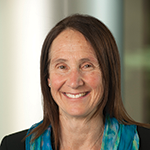 Nancy E. Lane, MD, is a distinguished professor of medicine and rheumatology at the University of California, Davis, School of Medicine. She holds an affiliated faculty appointment in the Department of Epidemiology at the University of California, San Francisco.
Nancy E. Lane, MD, is a distinguished professor of medicine and rheumatology at the University of California, Davis, School of Medicine. She holds an affiliated faculty appointment in the Department of Epidemiology at the University of California, San Francisco.
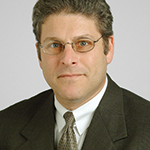 Brian F. Mandell, MD, PhD, MACP, is professor and chair of academic medicine and a senior staff physician in rheumatology, at the Cleveland Clinic.
Brian F. Mandell, MD, PhD, MACP, is professor and chair of academic medicine and a senior staff physician in rheumatology, at the Cleveland Clinic.
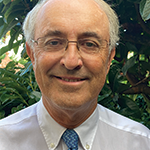 Pierre Miossec, MD, PhD, is a distinguished professor of clinical immunology at the University of Lyon, France.
Pierre Miossec, MD, PhD, is a distinguished professor of clinical immunology at the University of Lyon, France.
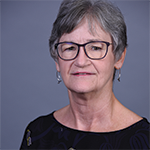 Kathleen M. O’Neil, MD, is a professor emerita for the Department of Pediatrics, Division of Pediatric Rheumatology, at Indiana University School of Medicine. She is affiliated with the James Whitcomb Riley Hospital for Children at Indiana University Health, Indianapolis.
Kathleen M. O’Neil, MD, is a professor emerita for the Department of Pediatrics, Division of Pediatric Rheumatology, at Indiana University School of Medicine. She is affiliated with the James Whitcomb Riley Hospital for Children at Indiana University Health, Indianapolis.
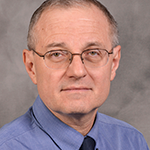 Andras Perl, MD, PhD, is a distinguished professor of the State University of New York (SUNY), chief of rheumatology and vice chair for research at SUNY Upstate Medical University, Syracuse.
Andras Perl, MD, PhD, is a distinguished professor of the State University of New York (SUNY), chief of rheumatology and vice chair for research at SUNY Upstate Medical University, Syracuse.
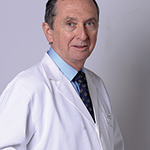 Bernardo A. Pons-Estel, MD, is head of the Grupo Oroño Regional Center for Autoimmune and Rheumatic Diseases (GO-CREAR) and Department of Rheumatology, Instituto Cardiovascular de Rosario, Santa Fe, Argentina.
Bernardo A. Pons-Estel, MD, is head of the Grupo Oroño Regional Center for Autoimmune and Rheumatic Diseases (GO-CREAR) and Department of Rheumatology, Instituto Cardiovascular de Rosario, Santa Fe, Argentina.
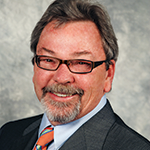 James R. Seibold, MD, is president of Scleroderma Research Consultants LLC, Aiken, S.C.
James R. Seibold, MD, is president of Scleroderma Research Consultants LLC, Aiken, S.C.
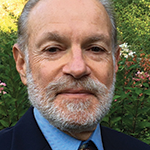 Leonard H. Sigal, MD, is a clinical professor in the Departments of Medicine and Pediatrics at Rutgers–Robert Wood Johnson Medical School, New Brunswick, N.J.
Leonard H. Sigal, MD, is a clinical professor in the Departments of Medicine and Pediatrics at Rutgers–Robert Wood Johnson Medical School, New Brunswick, N.J.
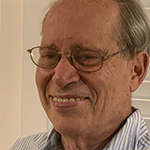 Sheldon Solomon, MD, is a rheumatologist at Arthritis, Rheumatic & Back Disease Assoc. PA, Voorhees, N.J.
Sheldon Solomon, MD, is a rheumatologist at Arthritis, Rheumatic & Back Disease Assoc. PA, Voorhees, N.J.
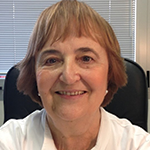 Angela Tincani, MD, is an appointed professor in the Rheumatology Specialization School, University of Brescia, Italy, and a senior consultant and former head of rheumatology and clinical immunology at Spedali Civili of Brescia. She is a visiting professor at Sechenov First Moscow State Medical University of the Ministry of Health of the Russian Federation.
Angela Tincani, MD, is an appointed professor in the Rheumatology Specialization School, University of Brescia, Italy, and a senior consultant and former head of rheumatology and clinical immunology at Spedali Civili of Brescia. She is a visiting professor at Sechenov First Moscow State Medical University of the Ministry of Health of the Russian Federation.
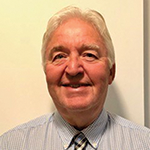 James Witter, MD, PhD, retired from the positions of chief science officer, Patient-Reported Outcomes Measurement Information System (PROMIS) and Pediatric Patient-Reported Outcomes in Chronic Diseases (PEPR) program, and medical officer for the Rheumatic Diseases Clinical Program, National Institute of Arthritis and Musculoskeletal and Skin Diseases (NIAMS), National Institutes of Health, Bethesda, Md. He continues to see patients at the NIAMS Community Health Clinic.
James Witter, MD, PhD, retired from the positions of chief science officer, Patient-Reported Outcomes Measurement Information System (PROMIS) and Pediatric Patient-Reported Outcomes in Chronic Diseases (PEPR) program, and medical officer for the Rheumatic Diseases Clinical Program, National Institute of Arthritis and Musculoskeletal and Skin Diseases (NIAMS), National Institutes of Health, Bethesda, Md. He continues to see patients at the NIAMS Community Health Clinic.
Keri Losavio is the editor of The Rheumatologist.



